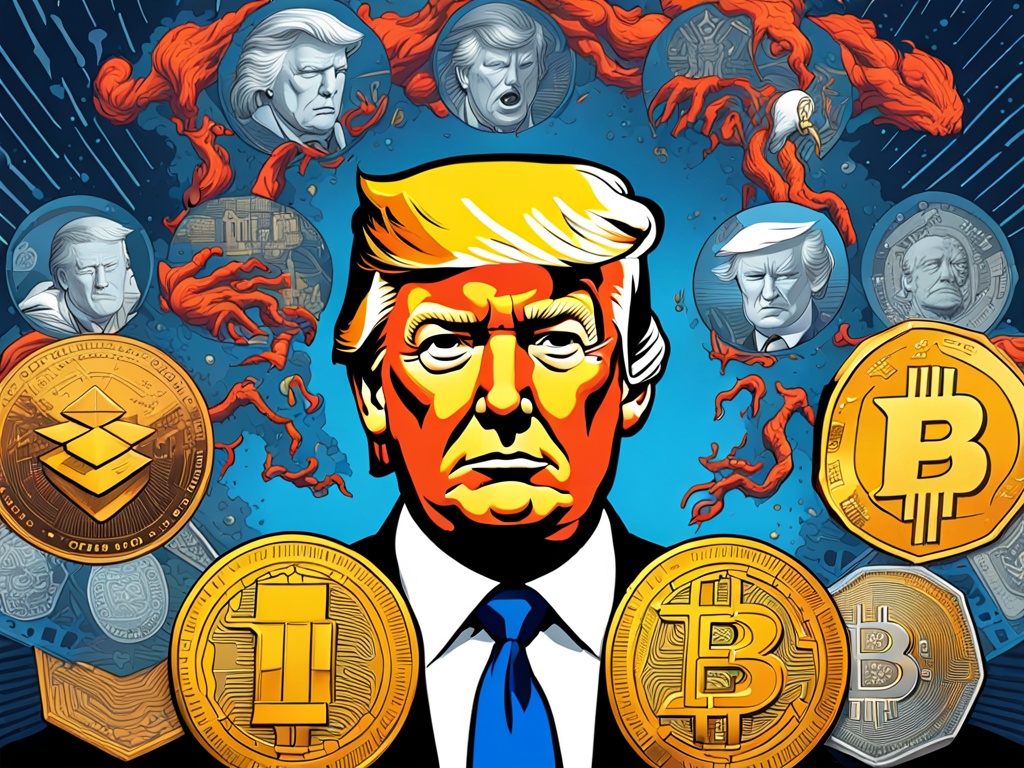Riding the Waves of AI Validation in Crypto Trading: What’s the Real Story?
So, imagine you’re sitting in a coffee shop, scrolling through your news feed about the latest in AI and crypto, and then you stumble across this controversy involving OpenAI and its new model. At first glance, it sounds like another tech giant pulling some strings, but hold on—what does this mean for us in the crypto market? Let’s break it down like we’re having a casual chat over that mocha latte.
Key Takeaways:
- Transparency Concerns: OpenAI’s handling of the FrontierMath benchmark raises questions about the integrity of AI performance metrics.
- Impact on Investments: Trust in AI models used in trading could be shaken, possibly influencing market behavior.
- Broader AI Industry Implications: This isn’t just about OpenAI; it signals larger issues with how AI advancements are validated.
- Future Developments: Epoch AI’s plan to implement a "hold out set" for better testing will affect future benchmarks.
Now, for those not in the loop, here’s what went down. OpenAI announced its new AI model, o3, which managed to score a nifty 25.2% on the FrontierMath benchmark. Sounds impressive, right? But then it came out that OpenAI actually helped design this very benchmark—like a student acing an exam they helped craft. Talk about a questionable victory!
Trust Issues in AI Performance
So, what does this mean for the crypto market? Well, if you think about it, how much do we rely on AI algorithms for trading decisions? A lot of these algorithms are built to analyze data, predict trends, and even execute trades automatically. If these underlying performance metrics are suspect, you can bet your bottom dollar that investors’ trust in those algorithms is going to take a hit. And trust is everything in financial circles, particularly in the crypto world, where sentiment often drives the market more than actual performance.
Practical Tips When It Comes to Crypto Investment:
- Do Your Research: Always look beyond the surface. Before investing based on a model or algorithm, try to understand the underlying metrics. If those metrics have transparency issues, it might be a red flag.
- Diversify Smartly: Don’t put all your eggs in one basket—especially if your basket comes with a questionable endorsement from an AI model.
- Stay Updated: Keep an eye on developments not just in crypto but in AI as well; they intersect more than you think. If the AI landscape begins to change, it’s bound to ripple into the crypto market.
- Connect with Experts: Networking with other analysts can give you insights into trends or red flags you might miss.
The Bigger Picture
Is this controversy isolating to OpenAI? Not at all. A whole slew of top-performing AI models are facing similar scrutiny for how their performances are validated. Think about models from Google to Microsoft—they’re all in the same boat. Researchers are claiming that tests these models even succeed in could have been pre-known, more like memorizing answers than genuinely reasoning through problems. So what does that mean for product reliability? If we can’t even trust how these models perform, what does that mean for their outputs, especially in high-stakes environments like crypto trading?
Elliot Glazer, a lead mathematician at Epoch AI, voiced that he believes OpenAI didn’t cheat in their score reporting, but the lack of a formal contract to keep that code of ethics in check leaves some ambiguity. It’s a classic case of “trust me, bro,” but who really wants to roll with that in the finance world, right?
And let’s get into the nitty-gritty of the benchmarks. The issues with synthetic benchmarks like FrontierMath paint a fairly grim picture of how we assess these AI systems. If I had a nickel for every time I saw a crypto trader get wrecked because they relied too much on data that was possibly manipulated or skewed, I’d be a rich man by now!
The Path Forward
So, what’s next? Epoch AI plans on introducing a "hold out set" where they’ll withhold certain problems from OpenAI to test performance—good call, I’d say. But it’s one step in a long journey. It’s hard to shake the feeling that we’re all kind of on a shaky foundation here. Even top computer scientists argue that ideal testing conditions are virtually impossible to create; it’s like asking a magician to reveal their tricks.
To wrap it all up, while AI promises to aid our journey in the crypto market, we need to keep a watchful eye on the integrity of the data we’re relying on. It’s a wild west out there, and staying informed is your best tool for survival.
So, here’s a thought for you—how far do you think we can go with technology if we can’t even trust the tool in our hands? Isn’t it ironic that in an era of unprecedented access to information, we may need to sift through so much noise to find the truth? Keep that in mind, my friends, as we navigate this fascinating yet turbulent world of crypto investing!





 By
By
 By
By
 By
By

 By
By
 By
By